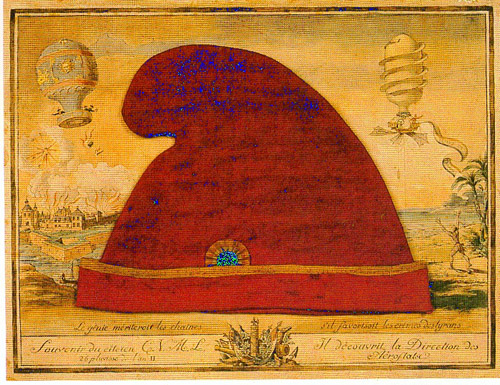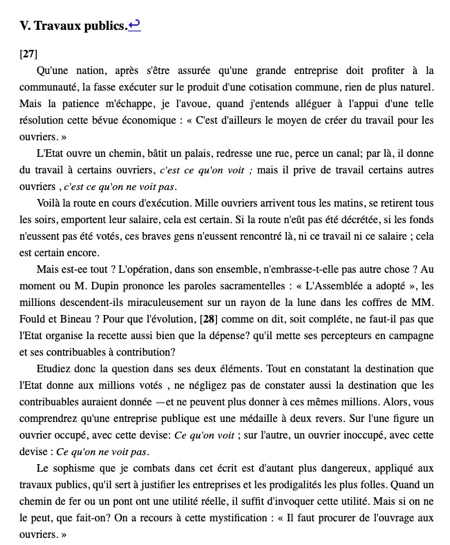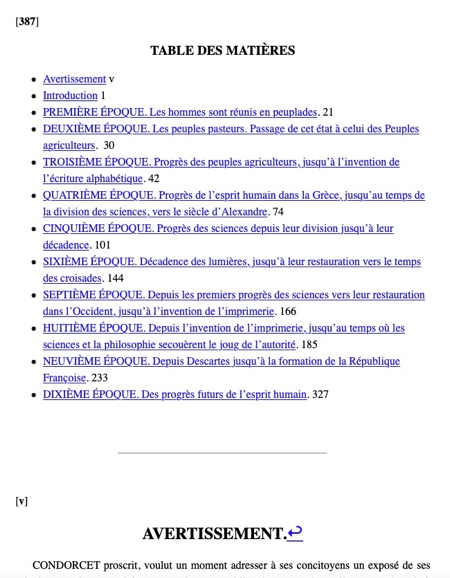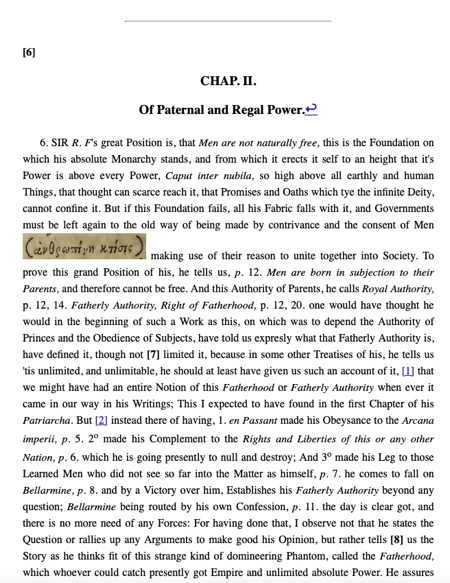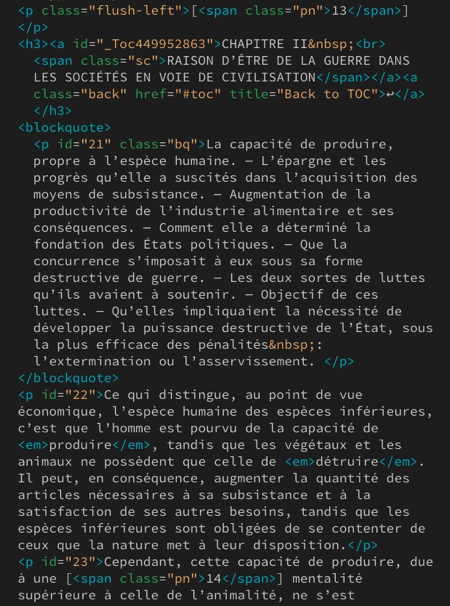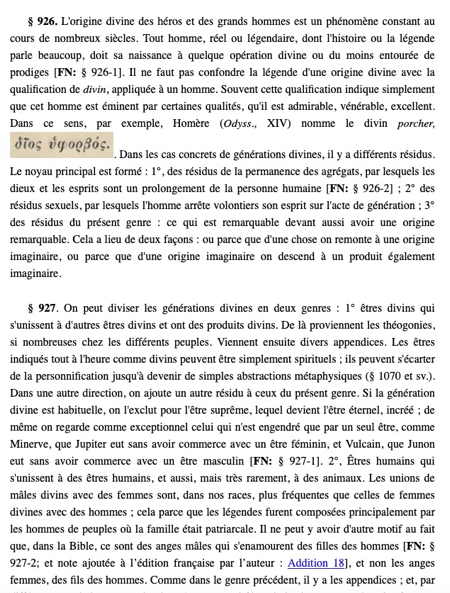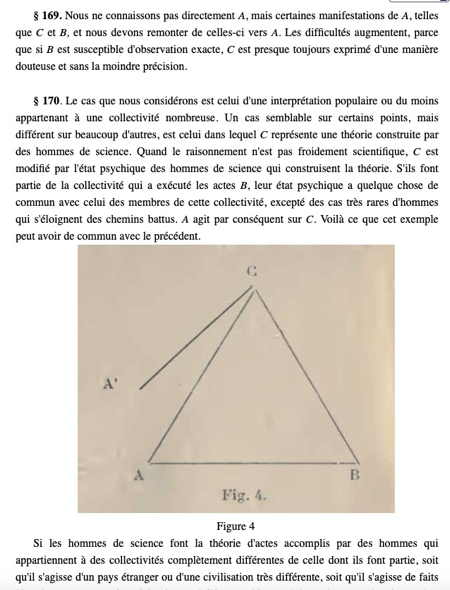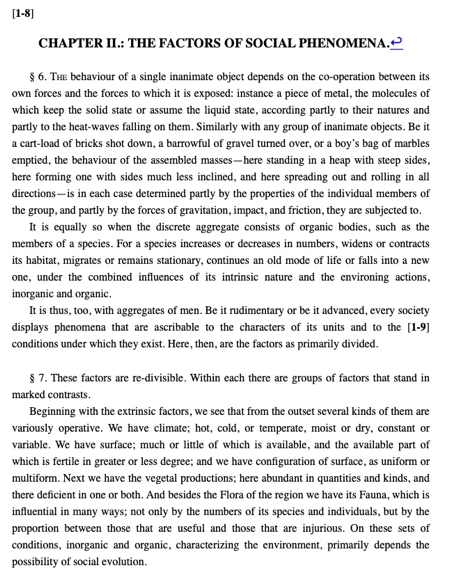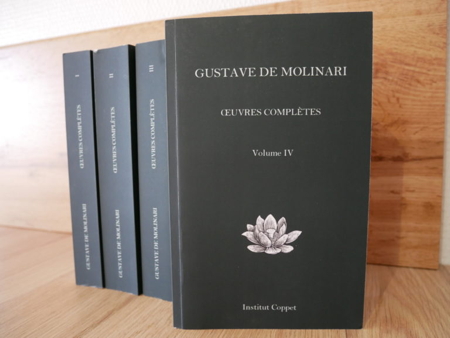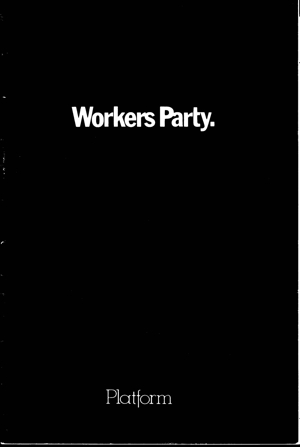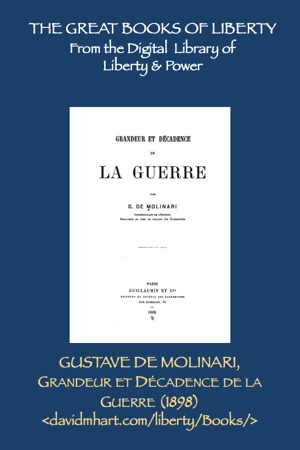
Introduction
Towards the end of his very long life, the French economist Gustave de Molinari (1819-1912) said that he had spent his entire life fighting in one form or another, protectionism, socialism, slavery, statism, and militarism.
He went to Paris as a young man and would-be journalist in 1841 from his native Belgium and began writing on current issues such as free trade and protection and the right of workers to form voluntary associations like trade unions; before gradually moving on to other topics such as slavery and other forms of coerced labour and the rise of socialism; and then Malthusian population theory, the role of war in the evolution of the state, the emergence of a ruling class and favoured interest groups who came to dominate the state, and the application of economic ideas to understand “everything” (including public goods, the family, the church, etc). Most famously among modern libertarians was his pioneering work on the private provision of public goods such as police and national defense, making the “first anarcho-capitalist”.
References
The Coppet Institute is publishing the Oeuvres complètes (Complete Works) of Molinari in a very ambitious undertaking. They have completed 9 volumes which only cover the first 10 years of Molinari’s long and productive life from 1842-1852. Since their site is poorly laid out and hard to navigate I have listed the volumes, a brief description of their contents, a more detailed version of their tables of contents, and links to download the PDFs here. In the meantime, go here À propos des Œuvres complètes de Gustave de Molinari – Institut Coppet.
My own bibliography of the works of Molinari with 73 Books, Printed Pamphlets, and Intros to books and 240 articles.
A paper I gave: “Was Molinari a True Anarcho-Capitalist?: An Intellectual History of the Private and Competitive Production of Security.” A paper given at the Libertarian Scholars Conference, New York City (28 Sept. 2019). Online.
And other material on the French political economists.
Molinari’s Evolving Interest in War and Peace
To take just the war and peace thread of his thought one can track his interest through the following stages:
1.) The Paris Peace Conference of 1849
A large international Peace Conference was held in Paris in August 1849, which was presided over by Victor Hugo and at which Bastiat gave an important speech (as did Richard Cobden). Molinari wrote on this for the Journal des Économistes (the main journal of the Paris economists). I included Bastiat’s speech in one of the volumes of his works I edited for Liberty Fund.
References
Bastiat’s Speech to the Peace Congress on “Disarmament and Taxes” (August 1849), in Addendum, CW3, pp. 526-32. Speech
2.) Articles for the *Dictionnaire de l’économie politique* (1852-1853).
The “30 something” Molinari was already an acknowledged expert on war and peace matters (as he was on the the history of tariffs) and he made important contributions on these topics (as well as many others) for the monumental DEP. He wrote the articles on “Guerre” (War), “Nations”, and “Paix” (Peace) . which he wrote for the Dictionnaire de l’économie politique (1852-1853).
References
See all of his articles here en français and a selection in English here.
3.) The Ideal of “Perpetual Peace” and a League of Neutral States
After he left Paris in 1852 to avoid the tyranny of Napoleon III he wrote a book (1857) on the 18th century peace advocate, the Abbey Saint-Pierre (1658-1743), who introduced him to ideas about the ideal of “perpetual peace” and a “league for peace” which he thought would make this ideal achievable. Part of his lengthy introduction to the book was published as an article in the JDE (Oct. 1856). Molinari continued to write on this throughout the 1860s in articles which appeared hi his own journal l’Économiste belge (The Belgian Economist) and in pamphlets like Le Congrès européen (The European Congress) (1864). Many of these shorter pieces can be found in the Appendix of of his book Grandeur et décadence de la guerre (1898). He would take these ideas up again in the late 1880s with his Projet d’Association pour l’établissement d’une Ligue des neutres (1887) (Plan for an Association to establish a League of Neutral Countries), and in an article in English which appeared in the London Times.
References
The extract from his book on the Abbé de Saint-Pierre is published by the Institut Coppet: “La Paix perpétuelle est-elle une utopie ?” (Is Perpetual Peace a Utopia?) here.
I have the entire book online in facs. PDF.
The Appendix of his book Grandeur et décadence de la guerre (1898). The full book is here
4.) The Role of War in the Evolution of Markets and States
The role of war in the evolution of markets and organised states is a central part of his series of works on historical sociology which appeared in the 1880s, beginning with L’évolution économique du XIXe siècle: théorie du progrès (Economic Evolution in the 19th Century: A Theory of Progress) (1880) and then its sequel L’évolution politique et la révolution (Political Evolution and the Revolution) (1884). In these works he argued that war had once served a useful purpose by protecting productive groups from barbarian invasions and the plunder and taxation which this entailed, but had outlived this function as a permanent warrior class emerged which institutionalized plunder in the form of the early state. In the modern era in which advanced markets and an articulate class of producers had appeared, war and militarism had now become the greatest threat to the evolution of societies.
References
Over a period of about 20 years Molinari wrote a series of 4 books on political and economic sociology, in war played a major part in his theory:
- L’évolution économique du XIXe siècle: théorie du progrès (Economic Evolution in the 19th Century: A Theory of Progress) (Paris: C. Reinwald 1880) in HTML
- L’évolution politique et la révolution (Political Evolution and the Revolution) (Paris: C. Reinwald, 1884) in HTML
- Grandeur et décadence de la guerre (The Rise and Fall of War) (Paris: Guillaumin, 1898) in HTML
- and a final fourth volume which summarises his life’s work on this topic: Économie de l’histoire: Théorie de l’Évolution (The Economics of History: A Theory of Evolution) (Paris: F. Alcan, 1908) in HTML
These 4 volumes are also part of my eBook Collection of the Great Works of Liberty.
I have written previously on the neglect of classical liberal sociology and class analysis. See my blog post on “The Scandalous Neglect of Classical Liberal Sociology” (30 May 2021) here.
5.) War and Peace at the End of the 19th Century
As the combination of a new tariff war, the rise of organised socialist parties, and another arms race threatened the peace and prosperity of the major European powers at the end of the 19th century, Molinari returned to the problem of war and peace in another book on historical sociology (the third in his series) where he treats war in considerable detail, Grandeur et décadence de la guerre (The Rise and Fall of War) (1898); and then again in a pair of articles in which he sums up the achievements and failures of the liberal movement throughout the 19th century, and the prospects for liberty (and war and peace) in the coming 20th century: “Le XIXe siècle”, JDE (Jan. 1901) and “Le XXe siècle”, JDE (Jan. 1902). I discuss his pessimistic and quite accurate prognosis for the coming century in my article subtitled “The End of the Century, the End of Liberty?”: ”Gustave de Molinari and the Future Of Liberty: ‘Fin De Siècle, Fin De La Liberté’?” (2021).
References
Gustave de Molinari, Grandeur et décadence de la guerre (The Rise and Fall of War) (Paris: Guillaumin, 1898) in HTML.
A recent new edition of this work: Gustave de Molinari, Grandeur et Décadence de la Guerre (Paris: Institut Coppet, 2015). Introduction par Benoît Malbranque. Available to download in PDF.
My version is a reproduction of the first edition, with original page numbers for citation purposes is here. It is also part of my eBook collection of “Great Books about Liberty” which are available in various eBook formats such as HTML, PDF, and ePub, from here.
Gustave de Molinari, “Le XIXe siècle”, Journal des Économistes, Janvier 1901, 5e série, T. XLV, pp. 5-19; and “Le XXe siècle”, Journal des Économistes, Janvier 1902, 5e série, T. XLIX, pp. 5-14. These articles are included in an Appendix to my article below.
David M. Hart, ”Gustave de Molinari and the Future Of Liberty: ‘Fin De Siècle, Fin De La Liberté’?” (2001, 2021). Here.
6.) His “Final Words” on the Matter
Literally his “last words” on the subject of war appeared in the last chapter of the last book he published in 1911 the year before he died: Ultima Verba: Mon dernier ouvrage (Last Words: My Final Work). This was his 73rd and would indeed be his last book. In an uncharacteristically optimistic conclusion, he believed that “une révolution silencieuse” (a silent revolution) had been at work during the 19th century which had made the “business” of war less and less profitable even for those who started the wars (the professional diplomats and politicians), ran the wars (the officer class), supplied states with the weapons to fight the wars (the munitions manufacturers), and those who loaned money to fund the wars (the bankers). What had once been a profitable business for the ruling class was no longer the case – even for the victors. Given the added costs of weaponry, the greater destruction caused by the new weapons, and the willingness of states to go further and further into debt to fund wars, the ordinary taxpayers would, he thought, have to rise up in rebellion after the next European war to finally bring war to an end.
On doit craindre qu’à la suite d’une guerre européenne l’ensemble des dettes des Etats soit presque doublé. Les populations ne pourront soutenir des guerres devenues trop onéreuses — ou subvenir aux frais des préparatifs de guerre — et, malgré ceux qui [333] en profitent et qui opposeront, sans nul doute, aux efforts pacifiques, une résistance acharnée, elles rejetteront ce lourd fardeau. Et ce sera la fin de la guerre. Elle coûtera trop cher aux belligérants et elle causera aux neutres un dommage croissant.
One would be right to fear that at the end of a (future) European war that total State debt would have almost doubled. Populations will not be able to support wars which have become too onerous, or to be able to pay the costs of the build up to (future) wars. In spite of (the fact that) those who profit from them (wars) will no doubt put up a bloody resistance to any anti-war (pacifist) efforts, they (the population) will throw off this heavy burden. And this will be the end of war. It will cost too much for the belligerents and cause increasing damage to neutral countries.
He didn’t mention in this final passage the more realistic fears he had expressed in his 1902 article about the coming 20th century, that it might take a couple of generations of war, economic depression, and brutal political oppression before the people would come to this awful realisation. But he was convinced that ultimately they would.
References
Gustave de Molinari, Ultima Verba: Mon dernier ouvrage (Last Words: My Final Work) (1911), Chap. XVIII. “La révolution silencieuse. La guerre” (War: The Silent Revolution), pp. 327-333. [facs. PDF[(http://davidmhart.com/liberty/FrenchClassicalLiberals/Molinari/Books/Molinari_1911UltimaVerba.pdf).
Additional Reading
The standard older works on the attitude of the political economists to war were by Edmund Silberner, only one of which has been translated into English:
Edmund Silberner , La Guerre dans la pensée économique du XVIe et XVIIIe siècle (Paris: Sirey, 1939).
Edmund Silberner, The Problem of War in Nineteenth Century Economic Thought, trans. Alexander H. Krappe (Princeton University Press, 1946). On James Mill, John Stuart Mill, Jean-Babtiste Say, Frédéric Bastiat and Gustave de Molinari.
Edmund Silberner, La Guerre et la paix dans l’histoire des doctrines économiques (Paris: Sirey, 1957).
Benoît Malbranque’s Introduction to the Institut Coppet edition of Molinari’s Grandeur et décadence de la guerre is online:
Benoît Malbranque, “Un ami de la paix : Gustave de Molinari” (Molinari: A Friend of Peace) Institut Coppet (décembre 12, 2015)
here.
To coincide with the 2015 publication of Molinari’s book Benoît also wrote a series of articles for the Institut Coppet’s magazine Laissons Faire on the importance of peace and liberty to the French political economists, which is a very good survey of the field: “« Paix et liberté ». La question de la paix chez les économistes français” (Peace and Liberty: The Question of Peace (in the thought of) the French Economists) (January and March, 2015). The article was written in 4 parts, consisting of
- “Bellicisme des Mercantilistes, Pacifisme des Libéraux (1570-1750)” (The Bellicism of the Mercantilists and the Pacifism of the Liberals)
- “Pacifisme et Cosmopolitisme des Physiocrates” (The Pacifism and Cosmopolitanism of the Physiocrats)
- “« Paix et Liberte » : L’idéal Pacisite (sic) des Disciples de J.-B. Say” (‘Peace and Liberty’: The Ideal of Peace of the Followers of JB Say)
- “Conclusion : La Paix est-elle une Vertu Française ?” (Conclusion: Is Peace a Virtue of the French (Economists)?)
These have been published as a booklet: Benoît Malbranque, La question de la paix dans l’économie politique française (Paris: Institut Coppet, 2015) which is available in PDF.
